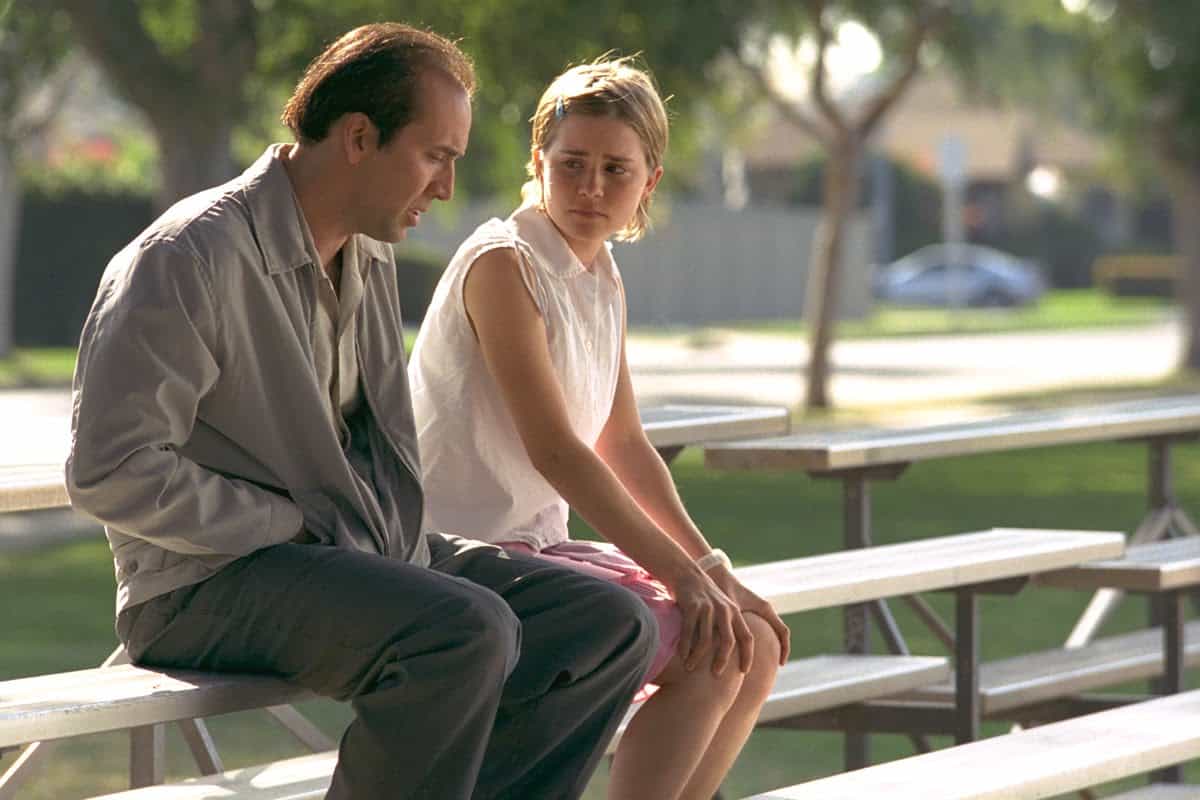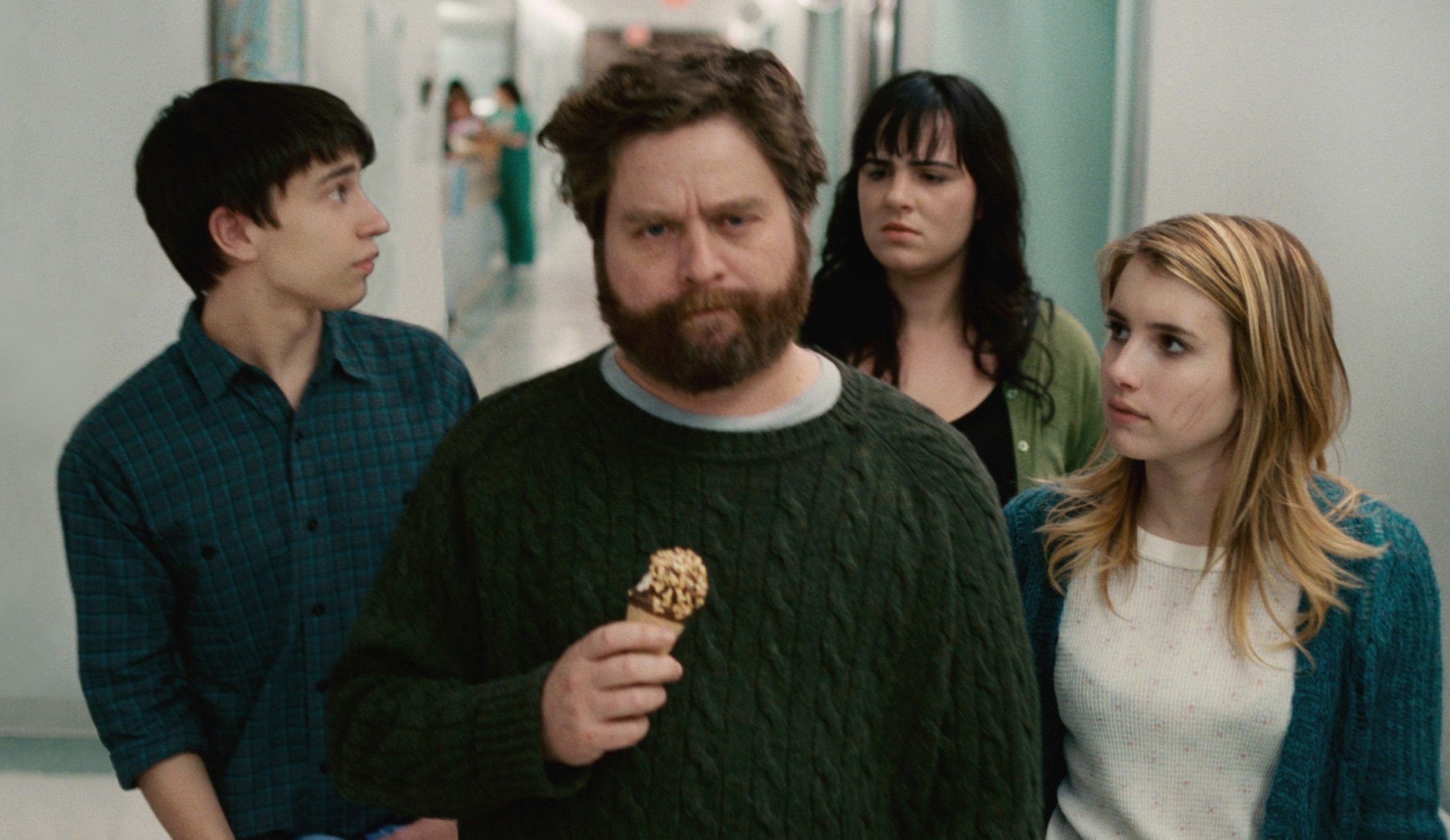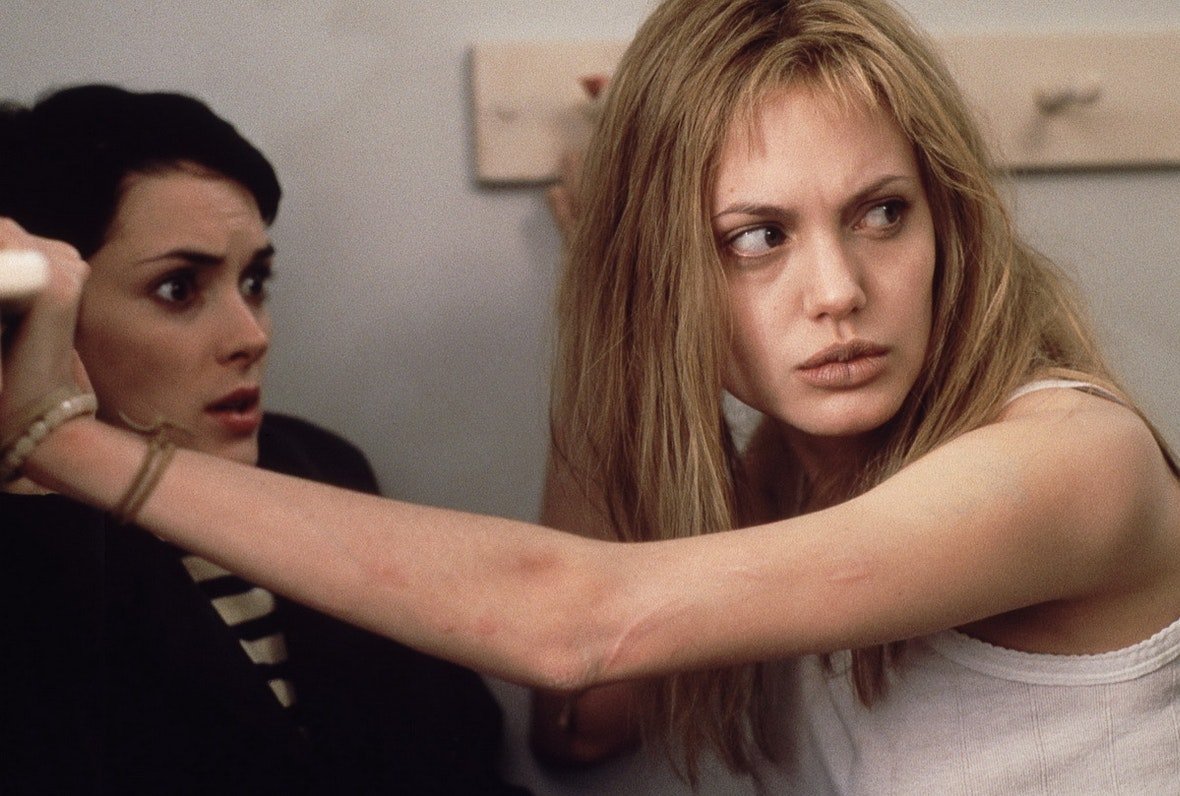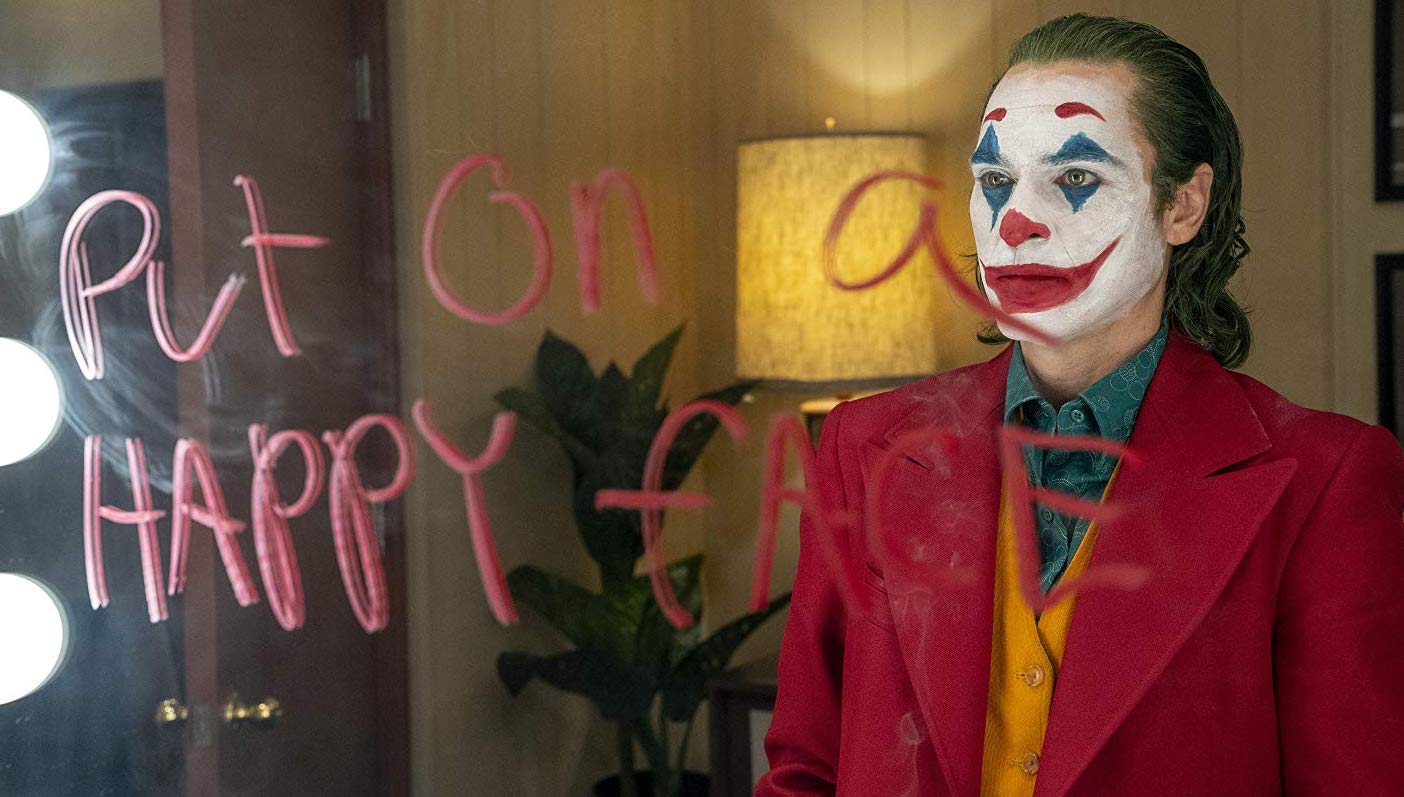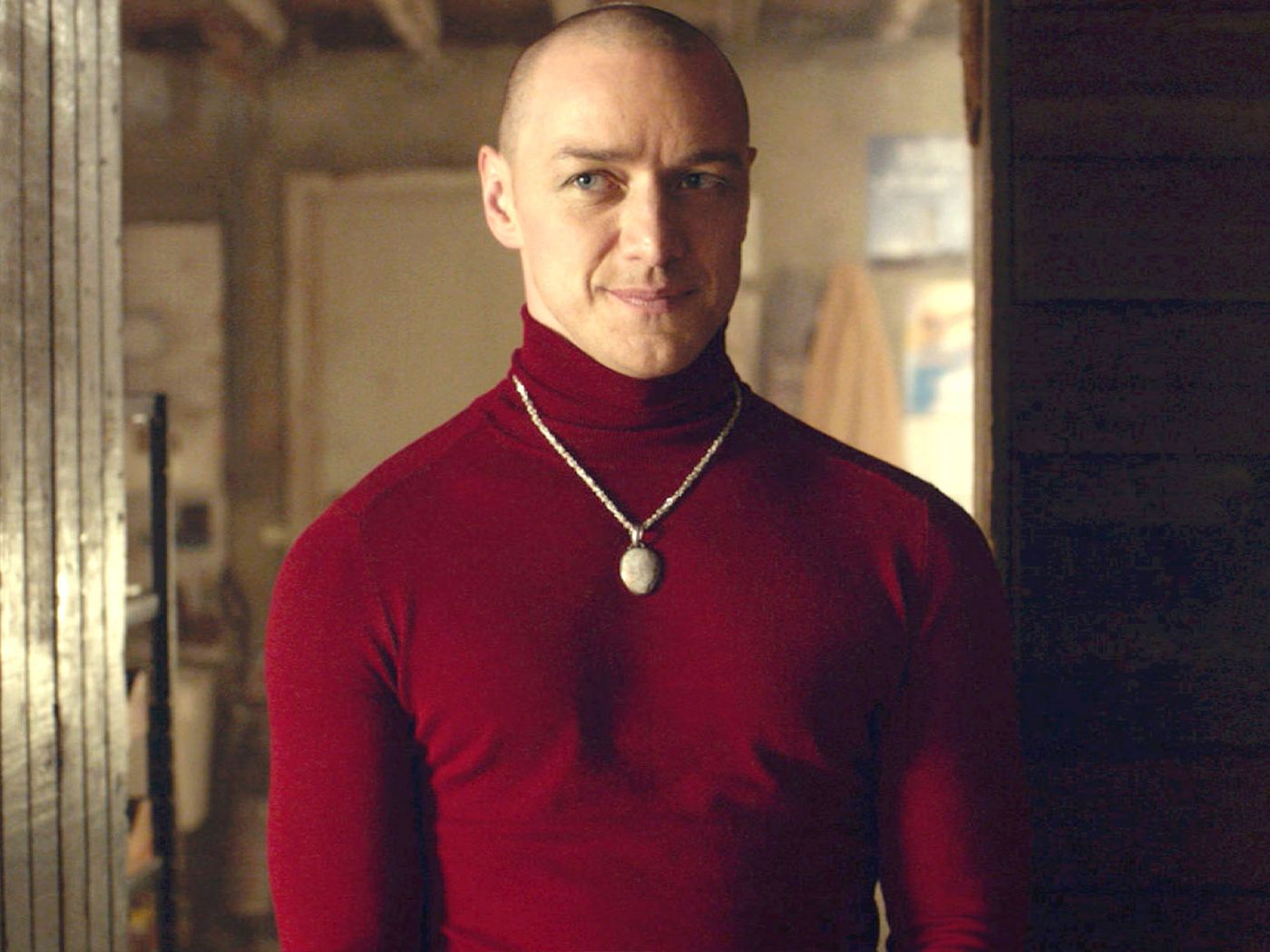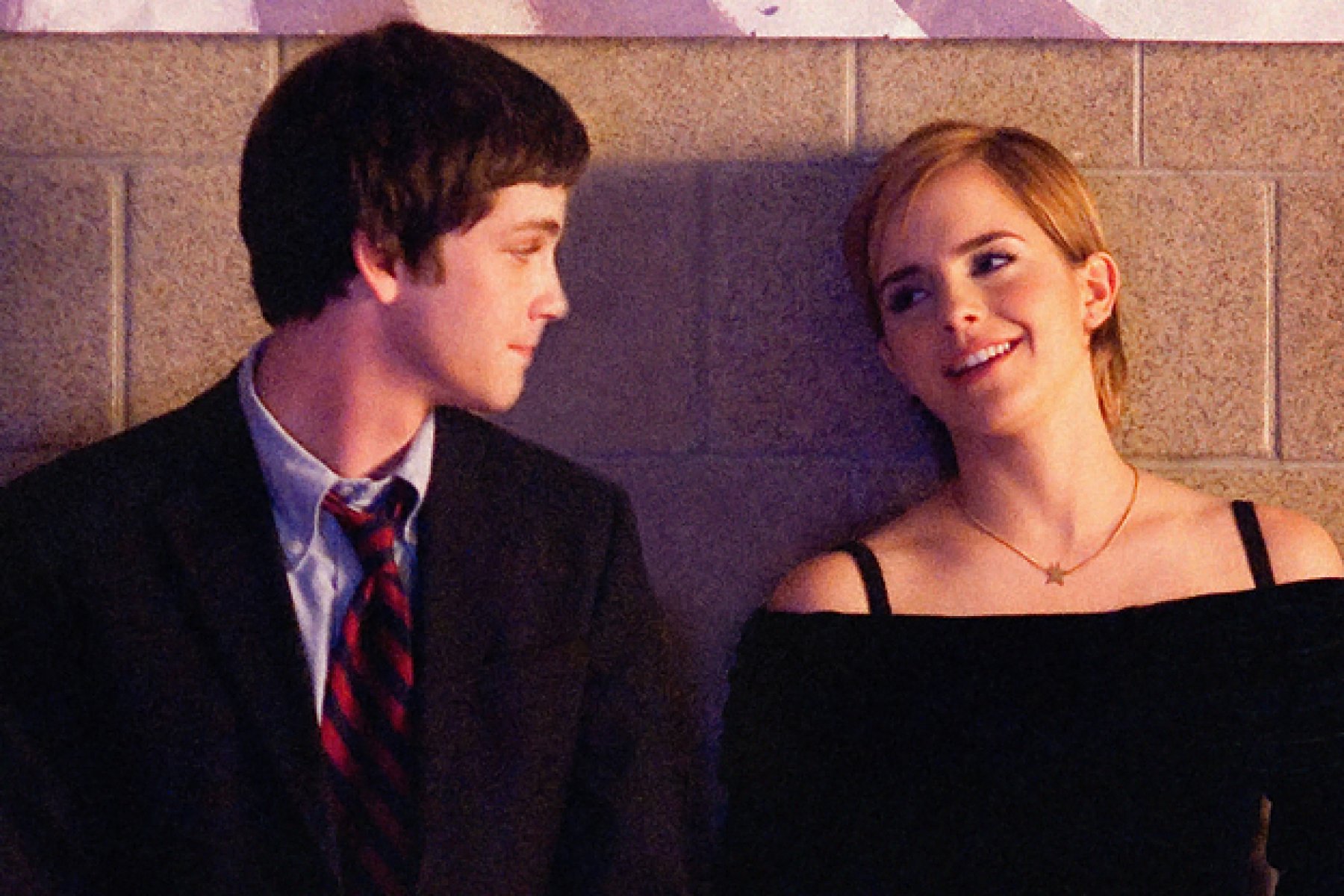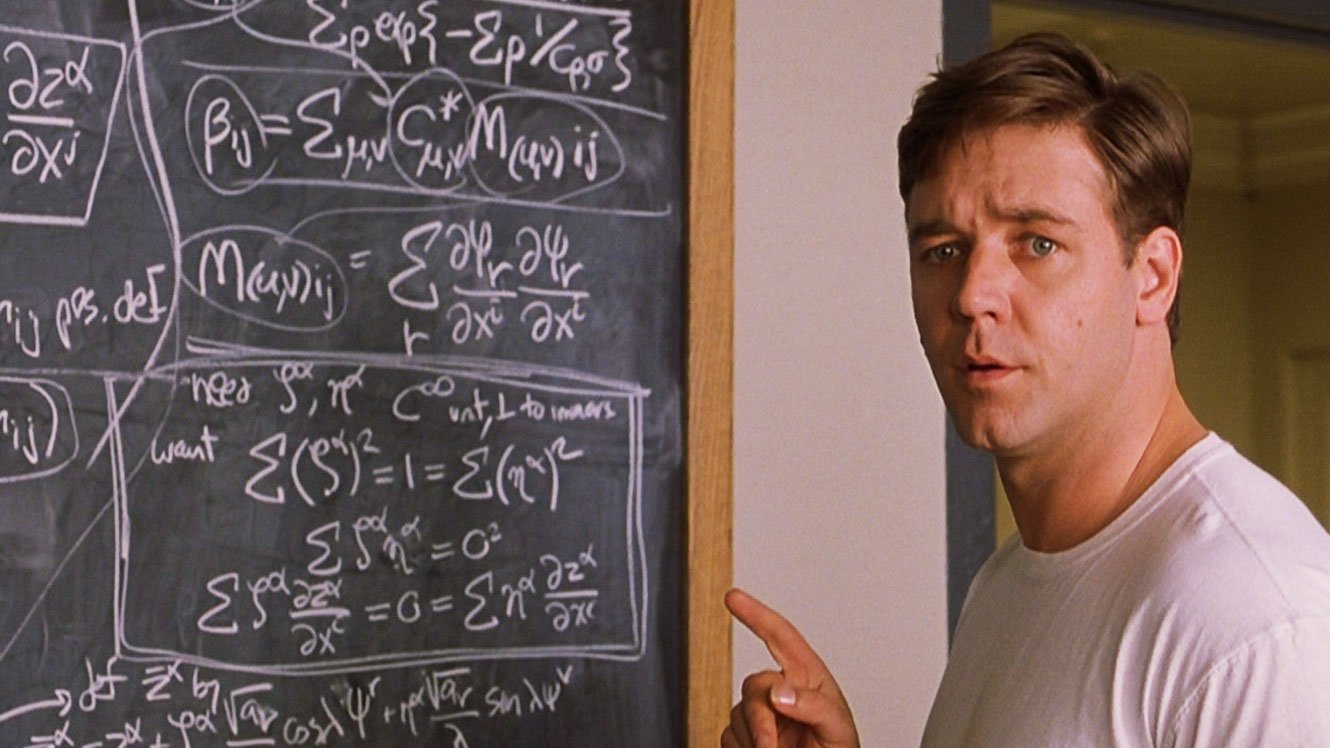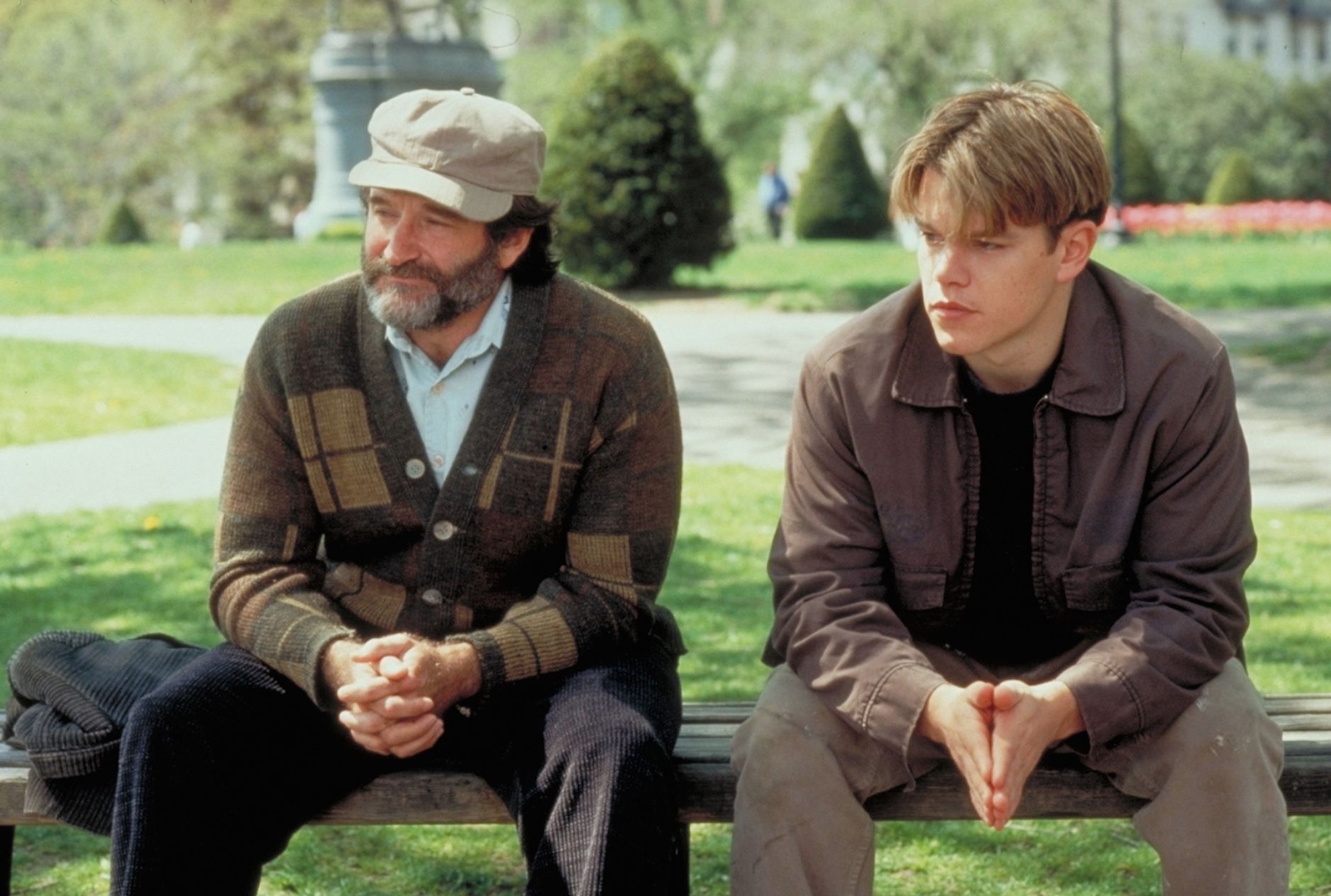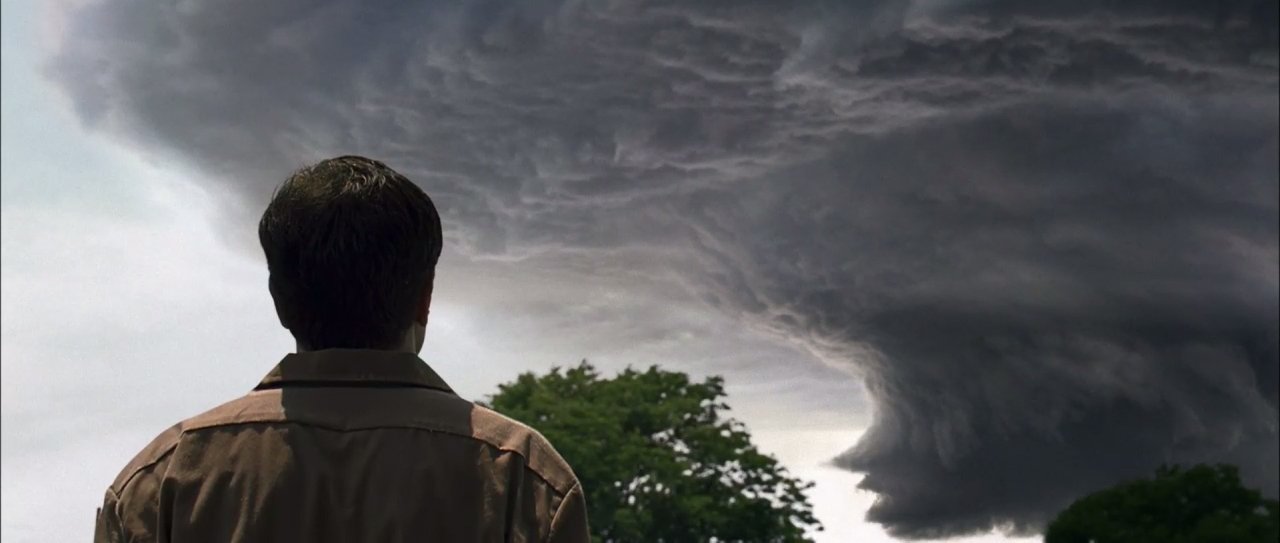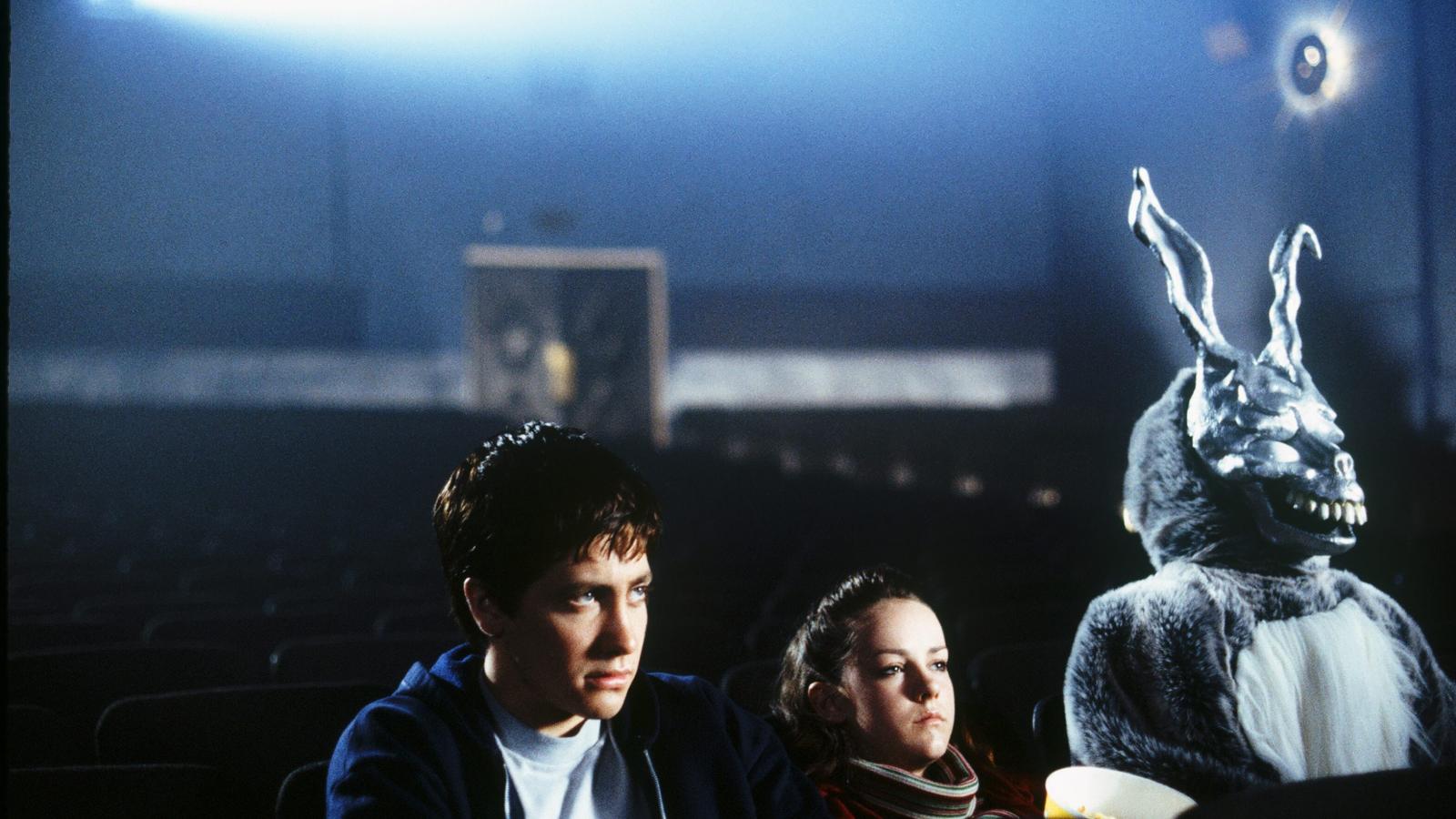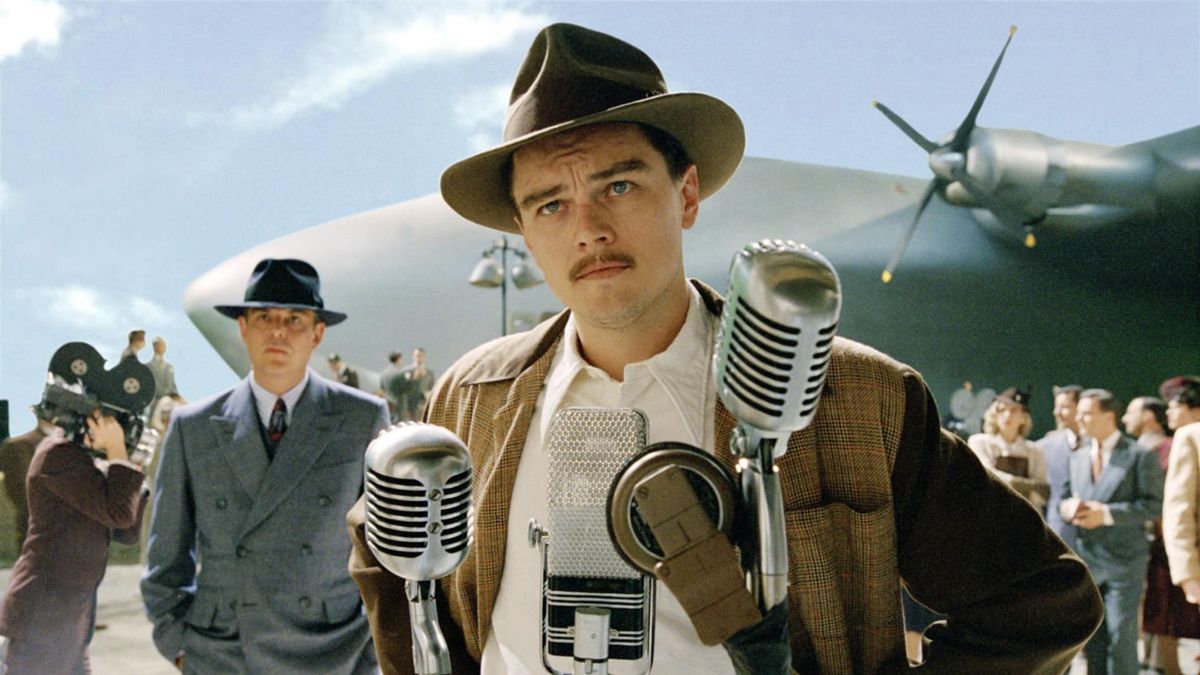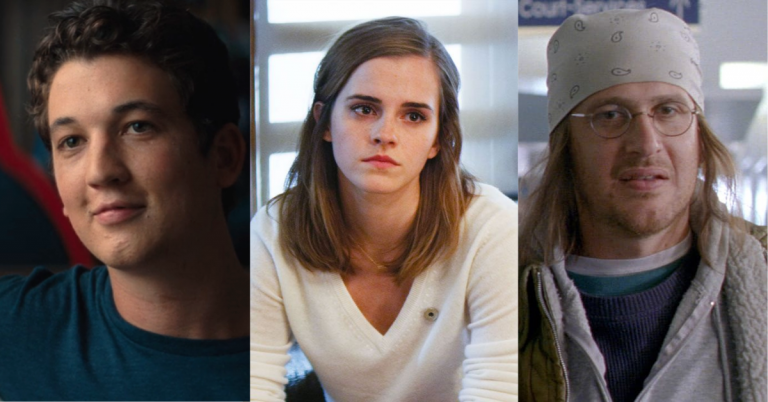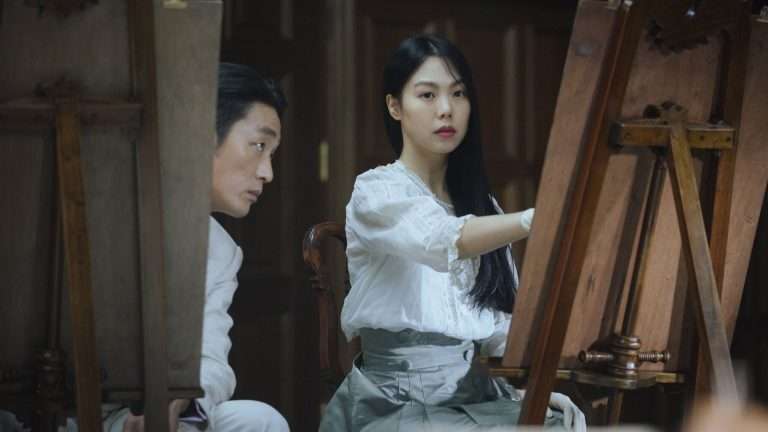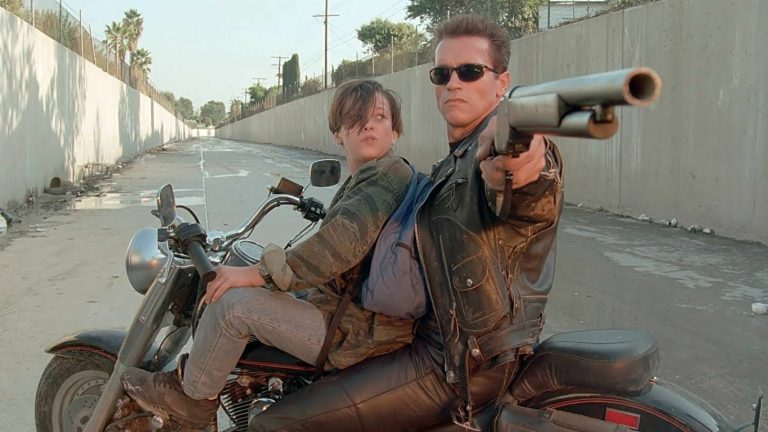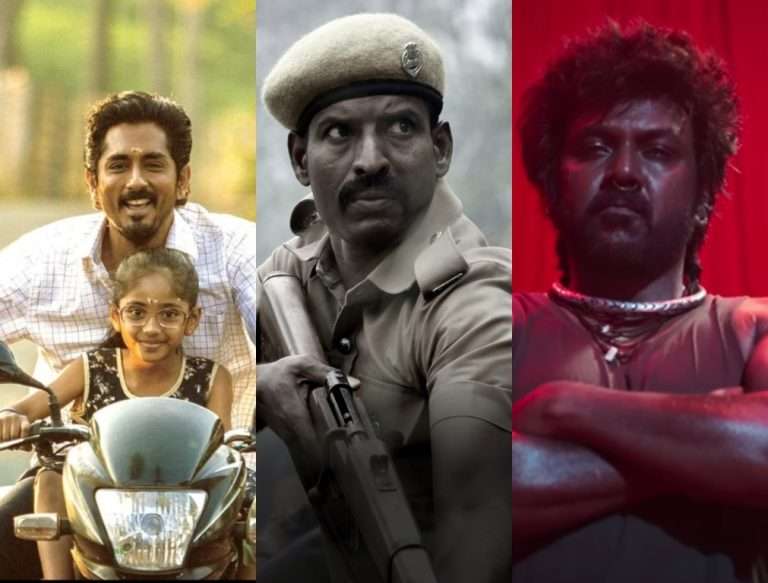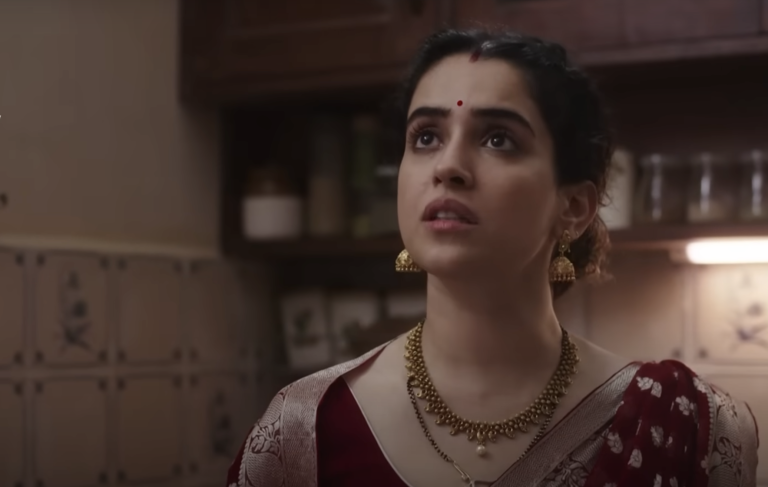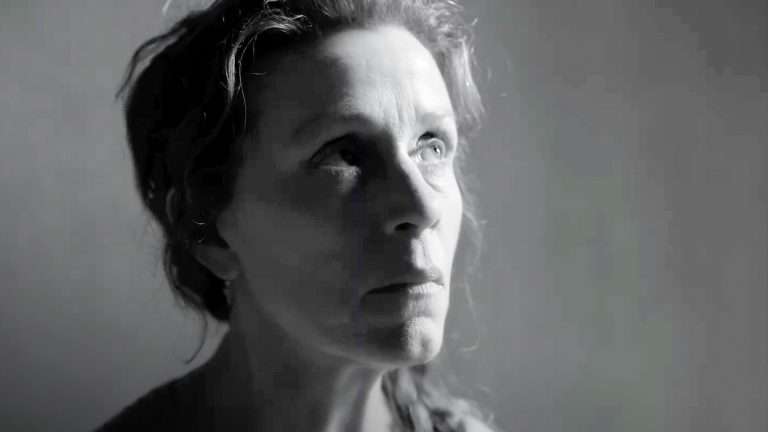Mental illness is a recurring topic within film. It can be used to explore timely issues in society (where 1 in 4 people experience some form of mental illness in their lifetimes), conduct a deep and compelling character study, or shock audiences from an unreliable protagonist. Although not all depictions of mental illness are positive—and Hollywood undoubtedly exploits the topic in damaging ways—some real masterpieces have been borne from probing a protagonist’s complex psyche. True stories and Oscar-winning performances litter this list, showcasing some of cinemas best loved psychological films. And we don’t just mean sad-man-sitting-at-a-bar kind of thing. These films grapple with real and difficult experiences. (Therefore: trigger warning). There’s no way we could fit them all on to this list, but here’s a handful of the best.
12. Matchstick Men (2003)
Ridley Scott takes it down a notch following his monumental hits Alien (1979) and Gladiator (2000), directing the more nuanced dark comedy Matchstick Men. The film is based on Eric Garcia’s 2002 novel and stars Nicholas Cage as Roy Waller—a con man living in LA. Parallel to the humorous crime narrative, where Roy and his partner Frank Mercer (Sam Rockwell) sell fake products to unsuspecting customers, is a psychological melodrama. Suffering with severe tourettes syndrome and OCD, Roy is struck by a panic attack and begins seeing a psychiatrist before the surprise arrival of his teenage daughter, Angela.
Related Read to Mental Illness Films: 15 Best Films Set In A Mental Asylum
Scott’s blend of biting comedy and poignant storytelling makes Matchstick Men a fun and leisurely watch compared to the rest of his intense filmography. Cynical and oftentimes unexpected, Matchstick Men draws viewers into Roy’s warped world. For all its frills and excitement, Roy’s mental affliction remains at the heart of the film, navigating themes of family dynamics and con artistry through his eyes.
11. It’s Kind of a Funny Story (2010)
It’s refreshing to see a movie that finds inspiration within the dark and difficult reality of mental illness (whilst still taking it seriously). It’s Kind of a Funny Story leaves viewers feeling uplifted rather than depressed, igniting a sense of gratitude within them for what they do have. This feeling is spawned from the protagonist himself, who checks himself into a psychiatric ward and comes out with a bigger appreciation for life. Teenage Craig (Keir Gilchrist) admits himself into hospital for a after contemplating suicide and spends the week meeting a variety of colorful characters, each battling with their own demons.
Also Read: 75 Best Movies of the 2010s Decade
Directors Anna Boden and Ryan Fleck know when to be light-hearted and when to be grave. The sweet and lovable Bobby (Zach Galifianakis) brings a playful element to the film, melting viewers hearts with his innocent nature. Craig falls in love for the first time with the sharp and witty Noelle (Emma Roberts), allowing Craig to finally view his future with optimism. Yet, the underside of this reveals a harsh reality; Bobby’s history of drug abuse and suicide attempts cause public breakdowns, and Noelle wears a series of slashes beneath her long sleeves. A coming-of-age drama that offers a timely perceptive on mental illness, It’s Kind of a Funny Story is leaves audiences with more than they came in with.
10. Girl, Interrupted (1999)
James Mangold’s psychological drama Girl, Interrupted is based on the memoirs of Susanna Kaysen from her time in a psychiatric hospital in the 60s. Following a nervous breakdown, Kaysen (played by Winona Ryder) attempts suicide and is checked into Calymoore. There, she meets an array of women suffering from various illness—schizophrenia, OCD, anorexia, self-harm—but is most drawn to Lisa Rowe. Angelina Jolie won an Oscar for her portrayal of the sociopathic yet likeable Lisa, who exudes a sort of charm over both the characters and audience.
Similar Read: 13 Reasons Why (Season 4) Netflix Review: A Perfect Ensemble Of Psychological Trauma
Girl, Interrupted opens both Kaysen and the audiences’ eyes to the very real world of mental illness; it’s assorted forms and destructive effects. However, it also makes light of the people behind the illness—real people, who shouldn’t simply be shunned aside as “crazy”. Themes of friendship and healing intermingle with the not-so-pretty truth of mental disorders. The fact this story originated from real people only furthers its importance in the discussion of mental health—a topic of much taboo back in the 60s and even 90s.
Watch Girl, Interrupted on Hulu
9. Joker (2019)
“The worst part of having a mental illness is people expect you to behave as if you don’t.” Joker stands out within the superhero genre for its atypical approach to capes and villains. Despite being the origin story of famous DC supervillain The Joker, Joker is a stand-alone movie, disconnected from the corn and clichés of blockbuster cinema. Clearly inspired by the tone and aesthetics of Scorsese’s Taxi Driver (1976), Joker is a gritty urban tale of neglected mental illness.
Also, Read: 10 Best Joaquin Phoenix Movie Performances
A (very skinny) Joaquin Phoenix gives an Oscar-winning depiction of The Joker before he founded crime. Arthur Fleck is a downtrodden middle-aged man still living with his demanding mother, scraping pennies as a party clown. Laughed at and ignored, his depression grows into something dark and dangerous, eventually causing riots in the street. His feeble, nervous disposition morphs into something more like Narcissistic Personality Disorder as he takes ownerships of his condition (Pseudobulbar affect) and gets invited on a talk show…much to the host’s demise.
Read the complete review of Joker here.
Watch Joker on HBO
8. Split (2016)
Mental illness is a recurring motif within the horror genre for its darkly unpredictable powers. However, few have managed to combine the theme and genre in a sympathetic way—mostly just using the illness as a tool for entertainment. Although Split is most definitely entertaining, the psychological thriller still retains some shred of empathy for our psychopathic protagonist, suffering with Dissociative Identity Disorder. The biggest strength of Split is by far James McAvoy’s performance, who seamlessly switches between twenty-four distinct alter egos. From Ms. Patricia (an orderly perfectionist) to Hedwig (a nine-year-old boy), McAvoy makes each persona unique and identifiable.
Similar Read to Mental Illness Films: 15 Best Horror Movies of 2020
The plot itself follows the kidnapping of three girls in an underground cell, but this is merely a stage to explore Kevin’s (the protagonist’s real name—his illness produced by an abusive childhood) psyche. The famously hit-or-miss director M. Night Shyamalan perhaps went a little overboard with Split’s ending. However, a more compassionate conclusion is awarded to Kevin in the combined sequel to Split and Unbreakable (2000). Glass (2019) witnesses Kevin reclaim control over his illness, explaining how “they’re all so scared. But I told them that I’m going to hold the light now […] it’s not so bad being in the light.”
Read the complete review of Split here
7. The Perks of Being a Wallflower (2012)
The genuineness of this simultaneously heart-breaking and heart-warming film comes from the director Stephen Chbosky—author of the original novel. The Perks of Being a Wallflower is an affectionate coming-of-age tale that nostalgically transports viewers back to the early 90s. Logan Lerman leads as the kind but cripplingly anxious Charlie as he begins high-school. He forms an affecting friendship on “the island of misfit toys”, falling for the beautiful but misunderstood Sam (Emma Watson).
Related Read to Mental Illness Films: 10 Best Time Travel Movies Ever Made
Sensitive issues surrounding Charlie’s trauma are dealt with delicately—never capitalizing on the explicit. The film exudes a wistfully sentimental tone; soft, angsty and quietly cinematic. Charlie goes to great length in caring for those around him; a people pleaser who sometimes to goes too far, invertedly causing more damage. His various trips to the psychiatric ward are never overly dwelled on. Instead, Chbosky focuses on the healing powers of friendship, love, music and authenticity.
6. A Beautiful Mind (2002)
A genius whose brains doesn’t grant them life on easy street, A Beautiful Mind tells the true story of John Forbes Nash Jr.—a world-changing mathematician who won a Nobel Laureate in Economics. Despite his massive contributions to the world of game theory and differential equations, Nash struggled with the complexities of his own brilliant brain. Speculated to have had Asperger’s Syndrome, Nash is plagued by obsessive habits and hallucinations. Eventually diagnosed with schizophrenia, Nash undergoes a series of (brutal) treatments—including shock therapy—that ultimately hindered his cognitive abilities.
Related Read to Mental Illness Films: 3 Films That Accurately Portrayed Drug Addictions
Directed by Ron Howard, A Beautiful Mind stars Russel Crow (as Nash), Ed Harris, Jennifer Connelly and Paul Bettany and won four Academy Awards—including Best Picture. Although not entirely accurate to the details of Nash’s life, the spirit and heart of his story remains intact, touching viewers with its compelling drama. Crowe’s performance is especially admirable, connecting to viewers on a humane level.
5. Good Will Hunting (1997)
One of the late Robin William’s most famous roles, Good Will Hunting is a touching and honest portrayal of the psychological effects of abuse. Matt Damon and Ben Affleck not only star in the movie, but won an Oscar for Best Original Screenplay in 1998 (alongside Best Picture and Best Supporting Actor). Director Gus Van Sant examines the relationship between therapist and client when young Will Hunting (Damon) is made to attend sessions as a deferred prosecution agreement.
Also, Read: 5 Interesting Facts About Good Will Hunting That You Probably Didn’t Know
On the surface, Hunting is a cocky, loud-mouthed janitor who spends most his time getting drunk. However, his secret genius soon becomes apparent when he anonymously solves a complex mathematical equation. Genius and illness often go hand-in-hand—as is Hunting’s case—which Dr. Sean Maguire (Williams) challenges during his sessions. Hunting’s aggressive refusal to face his past—and the scars that mark his body—means his life and relationships begin to crumble. Only one person seems to understand him: his funny, jovial therapist. What’s even more heartrending about this film is William’s own battle with depression, who spread joy to others through his belief in the power of laughter.
Watch Good Will Hunting on Hulu
4. Take Shelter (2011)
A refined psychological thriller, Take Shelter moves at a slow and steady pace as tension brews beneath the surface. Michael Shannon gives one of his best performances as the reserved family man Curtis, who battles with growing signs of schizophrenia. Curtis—through hallucinations and nightmares—forms a sixth sense that a storm is coming. Worried for his family, he obsessively begins construction on an underground shelter and secretly taking medication. But with a family history of mental illness, he nor the audience can ever be sure what’s real and what’s in his head.
Related Read: Every Jeff Nichols Film Ranked
Jeff Nichols directs a hard-hitting drama that really emphasizes the strain and torment of psychosis without glamorizing it. Ambiguity shrouds the film, engaging viewers into reaching their own conclusions. Take Shelter cherry-picks elements from various genres, combining the apocalyptic with the melodramatic; the subtle with the extreme. The small-town drama is beautifully told, intricately studying Curtis’s tortured psyche.
Read the complete review of Take Shelter here
3. Donnie Darko (2001)
Now one of the biggest cult hits of film history, Donnie Darko launched Jake Gyllenhaal’s career for his performance as the mentally disturbed teenager Donnie. The sci-fi thriller was written and directed by Richard Kelly with similarly apocalyptic themes to Take Shelter. When Donnie befriends a giant hallucinatory bunny named Frank, he is told the world will end in exactly 28 days, 6 hours, 42 minutes, and 12 seconds. Diagnosed with paranoid schizophrenia, Donnie frequently detaches from reality and acts out of consciousness.
Related Read: Donnie Darko (2001) Explained : A Journey Through The Director’s Theory
Eerily unforgettable, Donnie Darko has made waves since its release, with cinephiles still debating the films conclusion. Themes of time travel, mental illness and multiple realities amount to varying conspiracy theories surrounding Donnie Darko and what it’s really trying to say. One thing is for sure though: Donnie’s twisted world will forever remain a classic within independent cinema.
Watch Donnie Darko on Amazon Prime
2. Fight Club (1999)
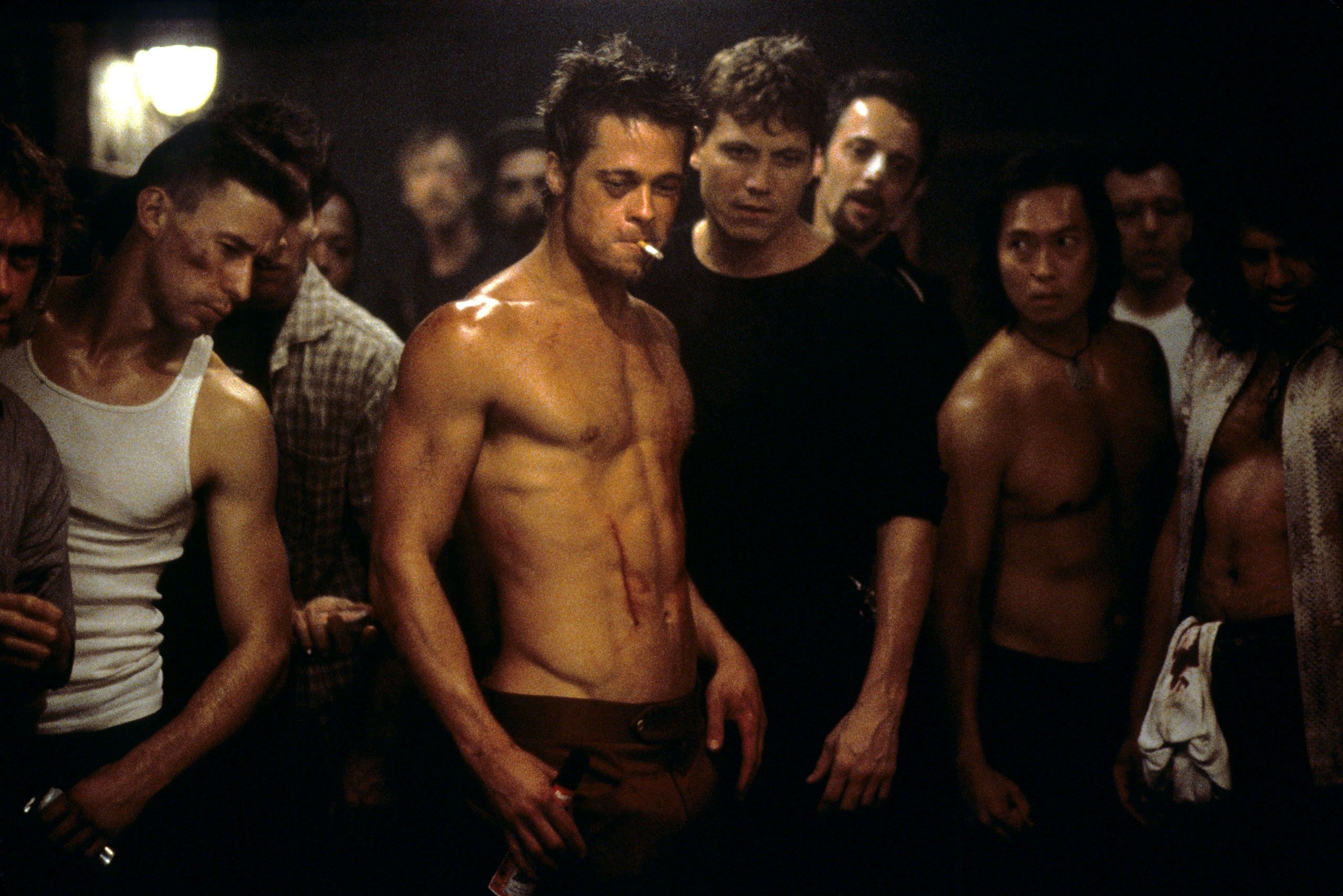
David Fincher’s Fight Club contains one of the most iconic plot twists in film history, all thanks to its protagonist mental illness. It’s not until the end of the movie that viewers become aware of “The Narrator’s” (Edward Norton) Dissociative Identity Disorder. Tyler Durden (Brad Pitt) is The Narrator’s mischievous, charismatic best friend who convinces him to quit his mindless office job and live a spontaneous life. Or so we believe. If you look closely, Fincher hints to Durden being an alter ego pretty early on, inserting quick cutaways that flash almost imperceivably onscreen.
Similar Read to Mental Illness Films: 10 Films To Watch If You Love Fight Club
The Pixies song “Where Is My Mind?” plays over the cataclysmic final scene in reference to The Narrator’s fractured state of mind. Not only is the audience unaware of his alternate personality, but so is The Narrator, shocked to find himself as the leader of an anti-corporate terrorist gang. Chuck Palahniuk’s 1996 novel explores many important issues surrounding Capitalist monotony and materialism, but the soul of the movie stands on our protagonist’s mental illness—or rather, his denial of it.
1. The Aviator (2004)
One of many collaborations between Martin Scorsese and Leonardo DiCaprio, this three-hour bio-epic takes a comprehensive dive into the mind of Howard Hughes: filmmaker, businessman, philanthropist and aviator. The then-richest man in the world, Hughes had a finger in every pie—but for this his mental fragility took a beating. Scorsese’s physiological autopsy reveals the destructive powers of OCD, as Hughes spirals into a state of tragic mania.
Also, Read: 10 Best Films of Martin Scorsese
DiCaprio, as ever, delivers a head-strong performance as the big-shot businessman whose sanity is a ticking time-bomb; soon unable to touch door handles or even leave his room. From the suspenseful jazz score to the Technicolour palette (replicating what visuals would have been available on film during the 30’s and 40s), The Aviator is a gorgeously artistic example of what mainstream cinema can achieve.

